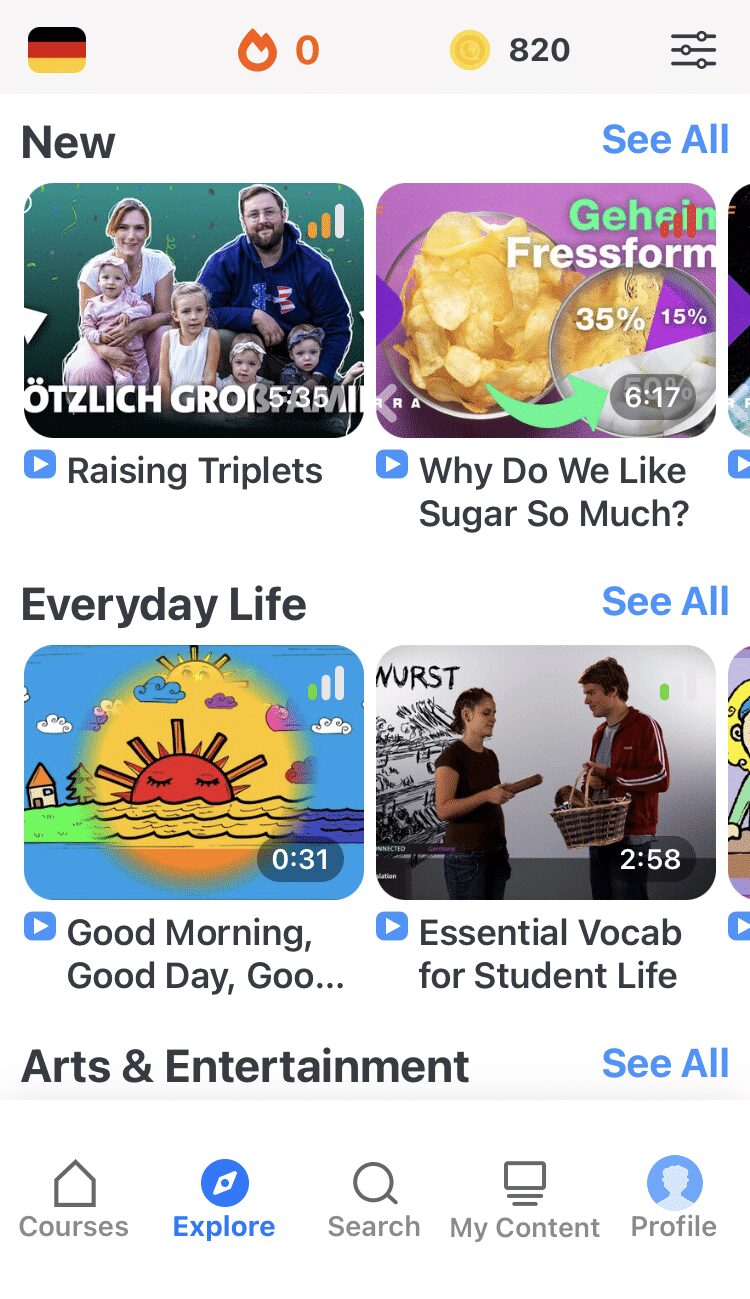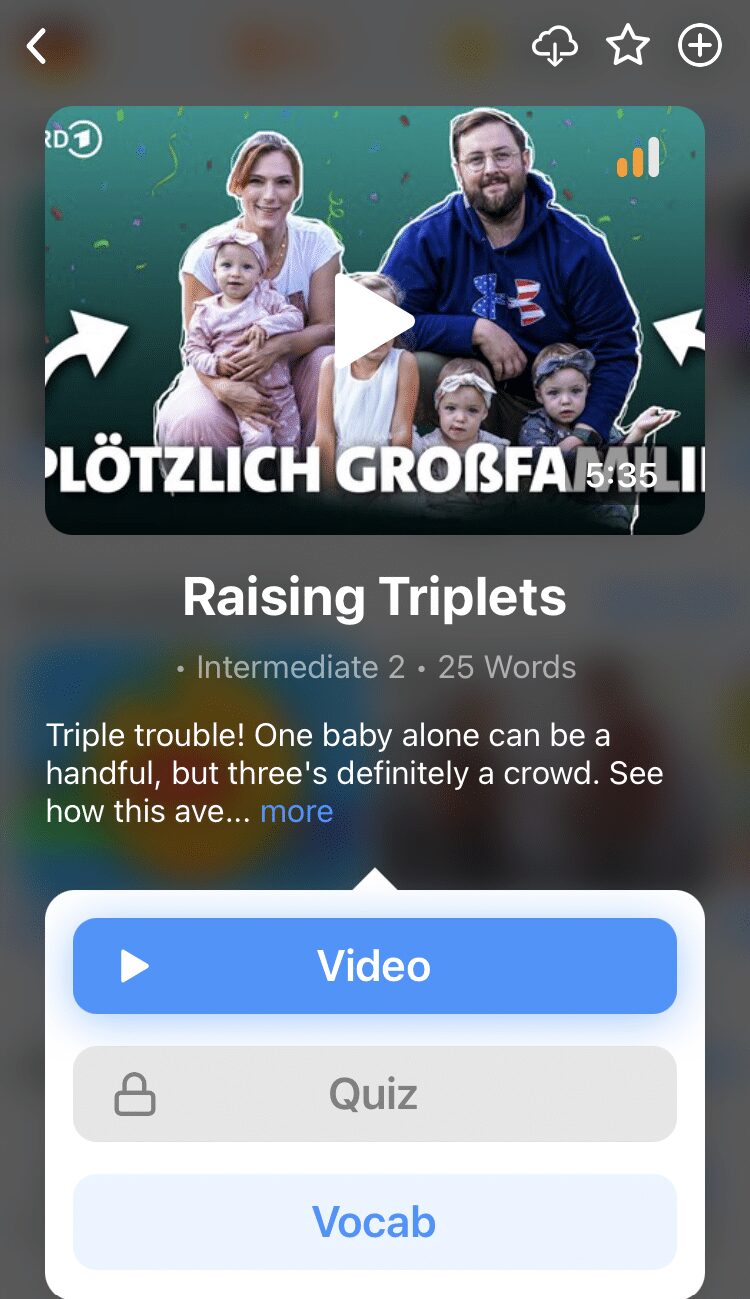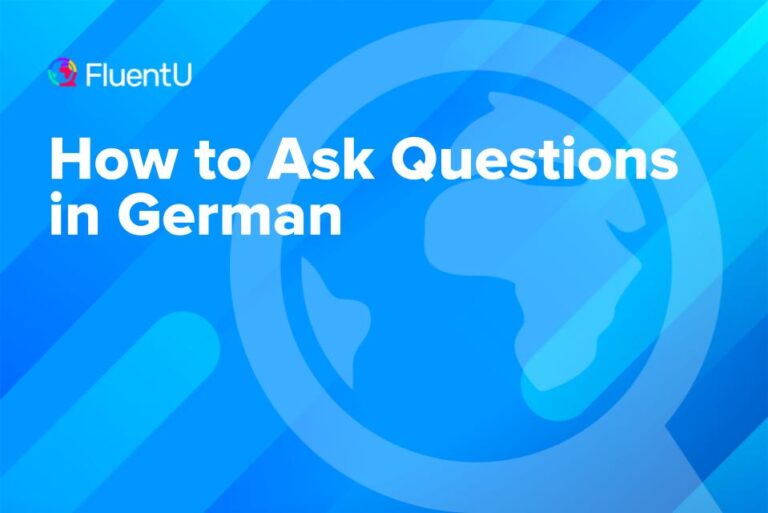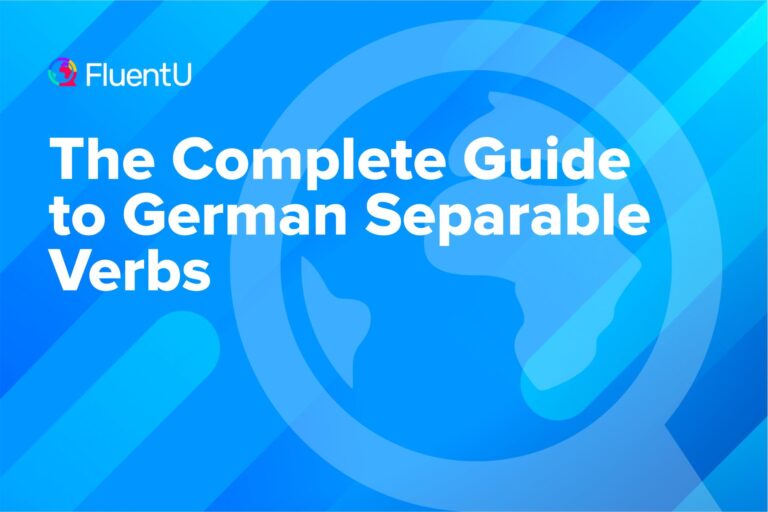German Conditional Tense
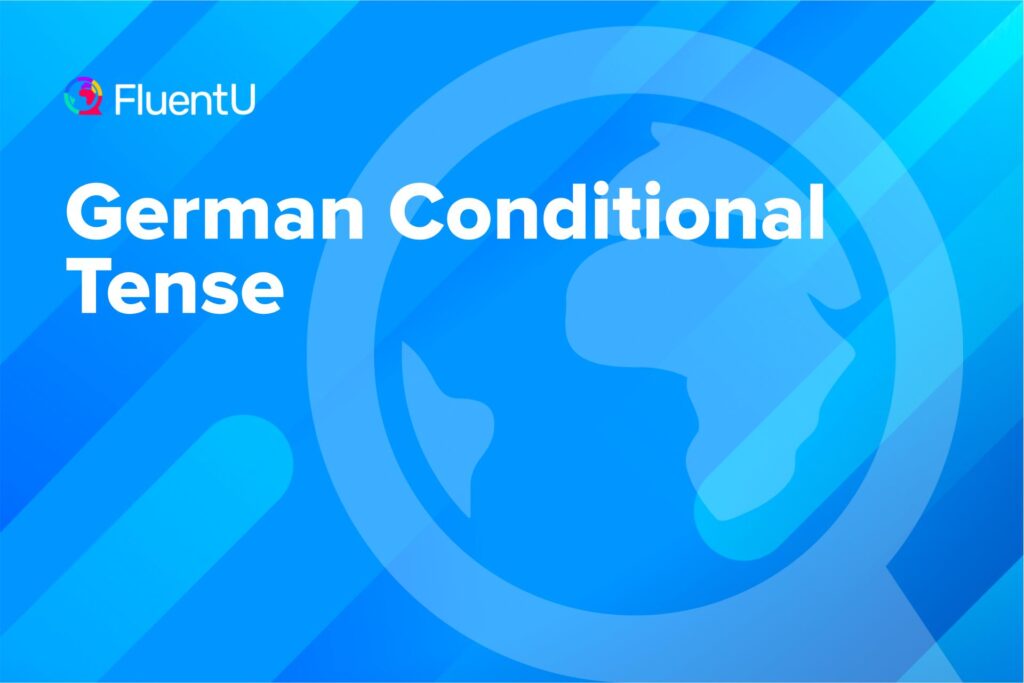
Technically, the German conditional tense is a subjunctive mood, not tense.
That means it refers to wishes or unreal situations, in contrast to the indicative mood, which covers statements of fact—e.g., Ich bin eine Frau or “I am a woman.”
Both English and German use the subjunctive in similar ways, but the German version is a teeny bit more confusing than its English counterpart.
For starters, the German name for “subjunctive” is konjunktiv , not subjunktiv as you might expect. There are also two konjunktiv forms, creatively named Konjunktiv I and Konjunktiv II , though we’re only going to worry about Konjunktiv II in this post.
That said, the conditional in German is one of the coolest, most flexible and most important grammar patterns you’ll ever learn.
Download: This blog post is available as a convenient and portable PDF that you can take anywhere. Click here to get a copy. (Download)
What Is the German Conditional Tense?
The German conditional tense (or Konjunktiv II) is important if you want to talk about hypothetical situations or things that could possibly happen in the future. You can usually build it in two ways: (1) figuring out the preterit stem, adding umlauts for strong verbs and then putting the appropriate conjugation at the end, or (2) leaving the verb completely alone and using a form of würden (would) for support instead.
Here’s how Method 1 would work in practice:
| Pronoun | finden
(to find): fand- | sein
(to be): war- | haben
(to have): hatt- |
|---|---|---|---|
| ich (I) | fände | wäre | hätte |
| du (you - singular) | fändest | wärest
wärst | hättest |
| er (he) | fände | wäre | hätte |
| wir
(we) sie (they) | fänden | wären | hätten |
| ihr (you - plural) | fändet | wäret
wärt | hättet |
This might seem a bit overwhelming, but there’s good news: This form is dying out for most verbs anyway.
Now, let’s get to the much simpler Method 2:
| denken (to think) | sagen (to say) |
|---|---|
| ich würde denken
(I would think) er würde denken (He would think) | ich würde sagen
(I would say) er würde sagen (He would say) |
| du würdest denken
(You would think) | du würdest sagen
(You would say) |
| wir würden denken
(We would think) sie würden denken (They would think) | wir würden sagen
(We would say) sie würden sagen (They would say) |
| ihr würdet denken
(You would think) | ihr würdet sagen
(You would say) |
Looking at it closely, you can see it’s just like English in its structure. No crazy new umlauts or cross-checking preterits required. As long as you can remember the forms of würden, then you already know the Konjunktiv II form of literally every German verb, because you just slap it on there.
If you want to see more examples and practice Konjunktiv II further, a language learning program like FluentU can be beneficial.
FluentU takes authentic videos—like music videos, movie trailers, news and inspiring talks—and turns them into personalized language learning lessons.
You can try FluentU for free for 2 weeks. Check out the website or download the iOS app or Android app.
P.S. Click here to take advantage of our current sale! (Expires at the end of this month.)
Now, let’s look at a very common way of using this subjunctive mood: conditional sentences with an if-then form.
German Conditional I: Strong Possibilities
Remember how the subjunctive applies to unreal situations and wishes? Conditional I doesn’t cover that. It covers statements of strong intention and facts.
For example:
Wenn es morgen regnet, bleiben wir zuhause.
(If it rains tomorrow, we will stay home.)
We don’t know if it will rain tomorrow, but we do know that if it does, we’ll stay home. That much is a fact.
What’s important here is that you start with wenn for “if” and that you pay attention to your verb movement. German verbs can move around in ways that English verbs don’t, and getting it right takes practice.
Think of this as a comma sandwich: You’ll always have a verb, then a comma in the middle, then another verb. This is the same no matter which kind of conditional sentence you’re building.
To form the German conditional tense for strong possibilities, your formula is:
Wenn + present tense + future or present tense
German Conditional II: Weak Possibilities to Impossible Situations
Now, let’s get into the Konjunktiv!
Wenn ich eine Million Dollar hätte, würde ich dir ein Haus kaufen.
(If I had a million dollars, I’d buy you a house.)
The above example assumes that you do not have a million dollars. But if you did have a million dollars, then you could buy a house! It’s not likely, but you can dream.
Likewise:
Wenn ich Olaf Scholz wäre, würde ich das Gesetz ändern.
(If I were Olaf Scholz, I’d change the law.)
Here, I’m saying that I will never become Olaf Scholz, but if I somehow could, I’d do things differently. This is where Conditional II is appropriate.
Again, we start with wenn for “if” before adding another comma sandwich: Konjunktiv II, then a comma, then another Konjunktiv II verb. If you do this with würden plus another verb, then würden goes in the sandwich, and the main verb goes at the very end.
The formula for the Conditional II in German would be:
Wenn + Konjunktiv II (1) + Konjunktiv II (2)
German Conditional III: The Impossible Past
This is as tough as it gets. We’re referring to two different impossible situations in the past, one of which would have caused the other if it had occurred. These are the time machine cases: They’re so impossible that we’d literally need to change history to make them happen.
Take this one:
Wenn du mich eingeladen hättest, wäre ich zur Party gekommen.
(If you had invited me, I would have come to the party.)
This sentence implies that you did not invite me to the party. Rude, but I can’t change the past. Just like you can’t change the fact I didn’t go to your party. (You missed out, buddy!) But now, we have two past situations that we cannot change, so we’re going to have to let it go.
Hopefully, the sentence structure is becoming familiar. The sentence starts with wenn again. But this time, we have a participle in there, which is usually the form with ge- at the beginning. Then we have the Konjunktiv-comma sandwich we’ve already seen, and then at the very end, we have another participle.
In short, the Conditional III formula would be:
Wenn + participle (1) + Konjunktiv II (1) + Konjunktiv II (2) + participle (2)
The Challenging Exceptions to the General German Conditional Rules
Confused enough yet? Well, it can get even tougher if you really want to become fluent.
Choosing to Make a “Strong” Possibility Sound “Weak”
First of all, how do we decide whether a situation is a “strong” or “weak” possibility? How can we choose between Conditional I and II? Sometimes, we can use both.
For example:
Wenn ich weniger esse, werde ich abnehmen.
(If I eat less, I will lose weight.)
Wenn ich weniger essen würde, würde ich abnehmen.
(If I ate less, I would lose weight.)
Both of these sentences refer to the same situation, and both are literally true. So what makes the second sentence acceptable, even though it’s not a “weak possibility” at all? Intention.
Sentence 1 is what you’d say on January 1, when you’re super pumped to start your New Year’s nutrition plan and get healthy. You are choosing to make the possibility sound strong, as strong as a true fact.
Sentence 2 is what you’d say on a hopeless day in August over a pint of ice cream, the New Year’s resolution long gone. You know it’s true that if you ate less, you’d lose weight. You’re just not going to.
Talking About Hypothetical Present Situations
We can also mix Conditional II and III in some cases where an impossible past event doesn’t just lead to another impossible past event, but to a present situation that could happen. In other words, we take the first half of Conditional III and connect it to the second half of Conditional II.
Wenn du in Korea aufgewachsen wärst, hättest du Koreanisch gelernt.
(If you had grown up in Korea, you would have learned Korean.)
Wenn du in Korea aufgewachsen wärst, würdest du heute Koreanisch sprechen.
(If you had grown up in Korea, you would speak Korean today.)
Why am I torturing you with this? It’s to show you that Conditionals I, II and III are not set in stone. Many grammar books don’t even teach Konjunktiv this way. If this approach works for you, use it! If it doesn’t, there are many other resources to help you learn in different ways.
Try these enough, and I promise they’ll become second nature. Here’s one last conditional phrase to inspire you:
Wenn du das übst, wirst du es schaffen!
(If you practice this, you will succeed! )
Download: This blog post is available as a convenient and portable PDF that you can take anywhere. Click here to get a copy. (Download)
And One More Thing...
Want to know the key to learning German effectively?
It's using the right content and tools, like FluentU has to offer! Browse hundreds of videos, take endless quizzes and master the German language faster than you've ever imagine!
Watching a fun video, but having trouble understanding it? FluentU brings native videos within reach with interactive subtitles.
You can tap on any word to look it up instantly. Every definition has examples that have been written to help you understand how the word is used. If you see an interesting word you don't know, you can add it to a vocabulary list.
And FluentU isn't just for watching videos. It's a complete platform for learning. It's designed to effectively teach you all the vocabulary from any video. Swipe left or right to see more examples of the word you're on.
The best part is that FluentU keeps track of the vocabulary that you're learning, and gives you extra practice with difficult words. It'll even remind you when it’s time to review what you’ve learned.
Start using the FluentU website on your computer or tablet or, better yet, download the FluentU app from the iTunes or Google Play store. Click here to take advantage of our current sale! (Expires at the end of this month.)

